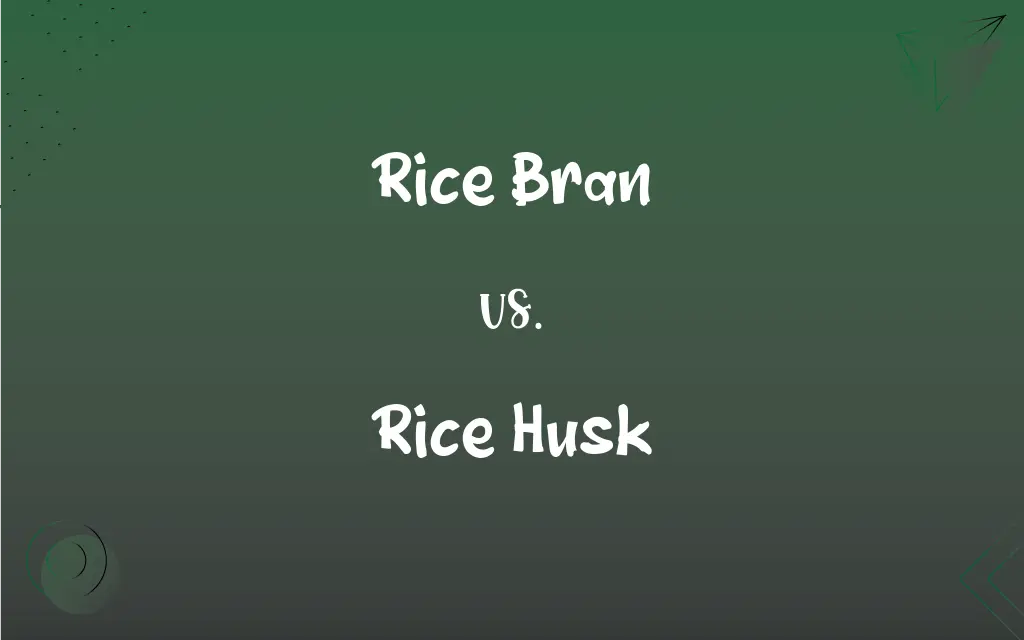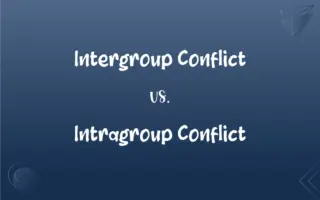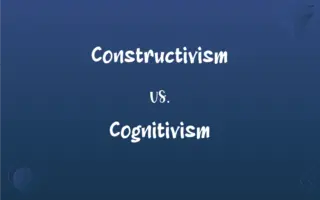Rice Bran vs. Rice Husk: What's the Difference?
Edited by Aimie Carlson || By Harlon Moss || Published on December 21, 2023
Rice bran is the nutrient-rich outer layer of rice grains, whereas rice husk is the hard protective covering enclosing the grain.

Key Differences
Rice bran is the outer layer of the rice grain, rich in nutrients, removed during milling. Rice husk, on the other hand, is the hard outer shell that protects the rice grain and is removed before milling.
Rice bran is known for its high nutritional value, containing proteins, fats, and vitamins. Rice husk is mostly made of hard fibers and silica, with minimal nutritional value.
Rice bran is used in foods and health products due to its nutritional benefits. Rice husk, being tough and fibrous, is used for industrial applications like building materials, fuel, and in agriculture.
During rice milling, rice bran is obtained as a byproduct, often used for bran oil extraction. The rice husk is a byproduct used in various industries, including as a renewable energy source.
Rice bran is biodegradable and can be used as animal feed or fertilizer. Rice husk, due to its tough nature, is used in sustainable products and as a biofuel, reducing waste.
ADVERTISEMENT
Comparison Chart
Part of Rice Grain
Nutrient-rich outer layer
Hard protective outer shell
Nutritional Value
High (proteins, fats, vitamins)
Low (mostly fibers and silica)
Primary Uses
Food products, health supplements
Industrial applications, biofuel
Processing and Byproducts
Byproduct in milling, used for bran oil
Byproduct used in construction, agriculture
Environmental Impact
Biodegradable, used as feed or fertilizer
Used in sustainable products, biofuel
ADVERTISEMENT
Rice Bran and Rice Husk Definitions
Rice Bran
Used for its beneficial health properties.
Rice bran oil is popular in healthy cooking.
Rice Husk
Generated in large quantities during rice processing.
The rice husk byproduct is used in various industrial applications.
Rice Bran
A common ingredient in livestock feed.
We mix rice bran into our cattle's feed for better nutrition.
Rice Husk
The hard covering of a rice grain.
Rice husk must be removed before the grain is edible.
Rice Bran
The nutritious outer layer of a rice grain.
Rice bran is often added to cereals for extra nutrition.
Rice Husk
A sustainable material for environmental solutions.
Rice husk is utilized in creating eco-friendly packaging.
Rice Bran
A good source of dietary fiber.
Adding rice bran to your diet can increase your fiber intake.
Rice Husk
Used for insulation due to its properties.
Rice husk is effective as a natural insulation material in construction.
Rice Bran
Obtained during the rice milling process.
Rice bran is a valuable byproduct of the rice milling industry.
Rice Husk
Used in building materials and fuel.
Rice husk is often used as a biofuel in sustainable energy solutions.
FAQs
What is rice bran?
The nutrient-rich outer layer of rice grains.
What are the health benefits of rice bran?
It's rich in vitamins, minerals, and healthy fats.
What is rice husk?
The hard, protective covering of a rice grain.
Can rice husk be used as fuel?
Yes, it's commonly used in biofuel production.
What industrial uses does rice husk have?
It's used in building materials, fuel, and agriculture.
Is rice husk good for the garden?
It can be used as a soil amendment or mulch.
Is rice husk edible?
No, it's not edible due to its hard, fibrous nature.
How is rice bran extracted?
It's separated from the grain during milling.
Is rice bran oil healthy?
Yes, it's known for its healthful properties.
What does rice bran taste like?
It has a mild, nutty flavor.
Can rice bran be eaten?
Yes, it's edible and nutritious.
How is rice husk used in construction?
As insulation material and in making bricks.
Can rice bran help with cholesterol?
Yes, it can aid in lowering cholesterol levels.
What's the shelf life of rice bran?
It can be stored for several months if kept dry.
Can rice husk be recycled?
Yes, it's used in various sustainable products.
Is rice husk harmful to the environment?
No, it's often used in eco-friendly applications.
Is rice bran used in animal feed?
Yes, it's a valuable ingredient in livestock feed.
Are rice husks biodegradable?
Yes, they are eco-friendly and biodegradable.
Can rice husk be used in animal bedding?
Yes, it's used for bedding due to its absorbency.
Does rice bran contain gluten?
No, it's naturally gluten-free.
About Author
Written by
Harlon MossHarlon is a seasoned quality moderator and accomplished content writer for Difference Wiki. An alumnus of the prestigious University of California, he earned his degree in Computer Science. Leveraging his academic background, Harlon brings a meticulous and informed perspective to his work, ensuring content accuracy and excellence.
Edited by
Aimie CarlsonAimie Carlson, holding a master's degree in English literature, is a fervent English language enthusiast. She lends her writing talents to Difference Wiki, a prominent website that specializes in comparisons, offering readers insightful analyses that both captivate and inform.






































































